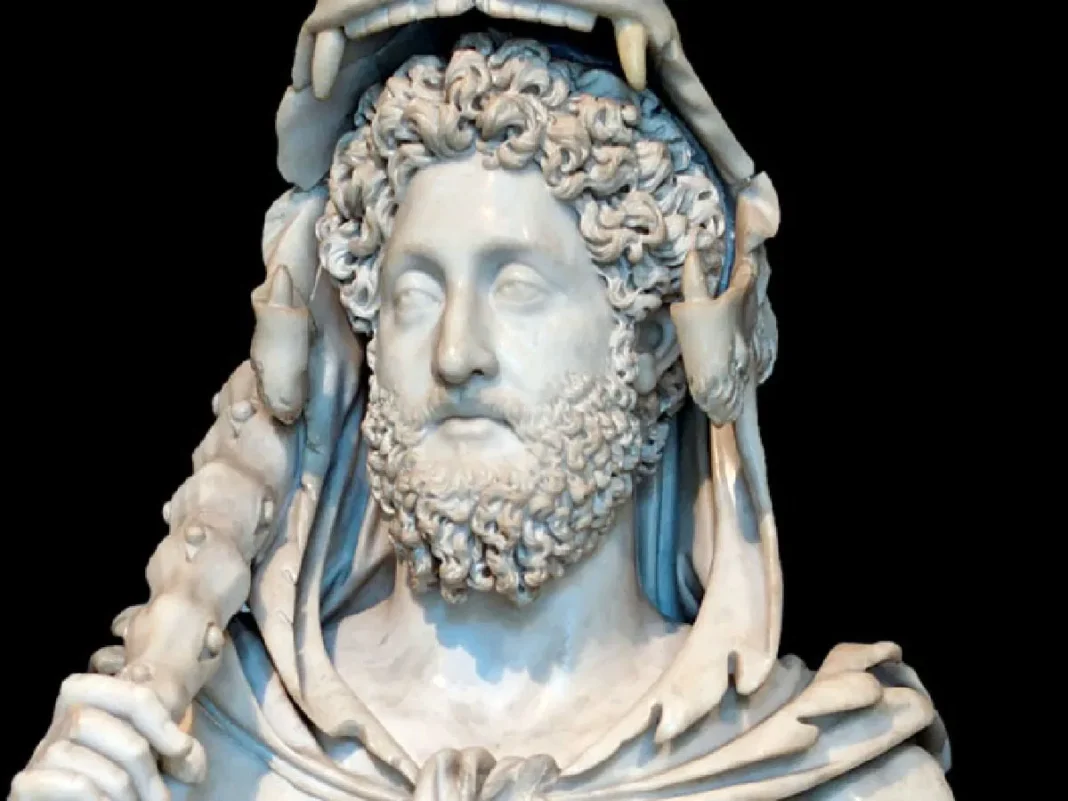In the annals of Roman history, certain figures stand out for their achievements, influence, and fascinating lives. One such individual is Lucius Aurelius Commodus Pompeianus, who served as an ordinary consul in 209 AD. While his name may not be as well-known as some other ancient Romans, his story is one of political prowess, military service, and a close connection to the imperial family.
In this article, we’ll explore the life and legacy of this intriguing historical figure.
Who Was Lucius Aurelius Commodus Pompeianus?
Lucius Aurelius Commodus Pompeianus was a prominent Roman politician and military leader who lived in the late 2nd and early 3rd centuries AD. He held the prestigious position of ordinary consul in 209 AD, a role that placed him at the highest levels of Roman government.
Unfortunately, the exact date of Pompeianus’ birth is unknown. However, based on the typical age of consuls and his marriage to Lucilla, historians estimate he was likely born sometime around 140-150 AD. This would have made him approximately 60-70 years old at the time of his consulship in 209 AD.
As an ordinary consul, Pompeianus would have been one of the most powerful and influential figures in Roman politics. The consulship was the highest elected office in the Roman Republic and continued to hold great prestige and authority even under the Empire. Consuls were responsible for presiding over the Senate, administering justice, and commanding armies in times of war.
Pompeianus’ achievement of this esteemed position is a testament to his political acumen, family connections, and military experience. It also suggests he was held in high regard by the emperor and the Roman elite. However, the details of his early political career and the specific path that led him to the consulship remain uncertain due to the limited historical records from this period.
What we do know is that Pompeianus’ consulship in 209 AD coincided with the reign of Emperor Septimius Severus, who ruled from 193 to 211 AD. Severus was known for his military prowess and his efforts to strengthen the empire. As consul, Pompeianus would have worked closely with the emperor and played a key role in shaping Roman policy and governance during this time.
Family Background and Early Life
Details about Pompeianus’ family background and early life are scarce in the historical record. However, given his high status and political success, it’s likely he came from a wealthy and influential Roman family.
In ancient Rome, family ties and social connections were often crucial for advancing one’s political career. Many successful politicians and military leaders came from established aristocratic families with a history of holding important offices.
It’s possible Pompeianus’ family had ties to the imperial dynasty, which would have given him a significant advantage in his political ambitions. However, without more specific evidence, the details of his family background remain speculative.
What we can infer is that Pompeianus likely received a traditional Roman education, which would have included studying rhetoric, philosophy, literature, and Greek. This education was essential for aspiring politicians, as it provided them with the skills and knowledge necessary to navigate Rome’s complex political landscape.
As a young man, Pompeianus may have begun his public career by serving in lower political offices or in the military. Many Roman politicians started out as quaestors, aediles, or tribunes before working their way up to higher positions like praetor or consul.
Military service was also a common path to political success in ancient Rome. Distinguishing oneself on the battlefield could lead to popularity with the people and the support of the legions, both of which were valuable assets for a budding politician.
While the specifics of Pompeianus’ early career are unknown, it’s clear he managed to rise through the ranks of Roman politics and society, ultimately achieving the pinnacle of success with his consulship in 209 AD. His story, even with its gaps and mysteries, offers a fascinating glimpse into the complex world of ancient Roman politics and the lives of those who shaped it
Marriage to Lucilla
One of the most notable aspects of Pompeianus’ life was his marriage to Lucilla, a Roman noblewoman who was the daughter of Emperor Marcus Aurelius and the sister of Emperor Commodus. This marriage likely took place sometime in the late 170s or early 180s AD.
Lucilla was a prominent figure in her own right. As the daughter and sister of emperors, she held a high status in Roman society. She was first married to Lucius Verus, who co-ruled as emperor with Marcus Aurelius from 161 to 169 AD. After Verus’ death, she married Pompeianus.
This marriage would have been a significant event in both Pompeianus’ personal life and his political career. Marrying into the imperial family provided him with invaluable connections and influence. It also suggests that he was highly respected and trusted by the imperial dynasty.
However, the marriage also came with its share of risks and complications. Lucilla was known for her ambitious personality and her involvement in political intrigues. In 182 AD, she was implicated in a plot to assassinate her brother, Emperor Commodus. As a result, she was exiled to the island of Capri and later executed on Commodus’ orders.
It’s unclear how this event impacted Pompeianus’ life and career. Some historians suggest that he may have been involved in the plot or at least aware of it. Others argue that he managed to distance himself from the scandal and maintain his political standing.
Regardless, his marriage to Lucilla remains a significant and intriguing part of his story. It provides a glimpse into the complex web of personal and political relationships that shaped Roman society and government.
It also highlights the precarious nature of power and influence in ancient Rome. Even those with close ties to the imperial family were not immune to the whims and suspicions of the emperors. The fact that Pompeianus managed to survive and even thrive in this environment is a testament to his political skill and adaptability.
Parents and Siblings
Unfortunately, the historical record provides little concrete information about Pompeianus’ parents and siblings. The names and details of his immediate family members have not been well-preserved in the surviving sources.
This lack of information is not unusual for figures from ancient history, particularly those who were not emperors or members of the imperial family. The focus of ancient historians and biographers was often on the most powerful and influential individuals, leaving the details of their family members and personal lives largely unrecorded.
However, we can make some educated guesses about Pompeianus’ family based on his status and achievements. As mentioned earlier, it’s likely that he came from a wealthy and influential Roman family. His ability to rise to the highest levels of Roman politics and marry into the imperial dynasty suggests that he had significant family resources and connections at his disposal.
In ancient Rome, family ties were often crucial for political and social advancement. Many successful politicians and military leaders came from families with a long history of holding important offices and wielding influence in Roman society.
It’s possible that Pompeianus’ father or other male relatives had held political offices or served in the military, paving the way for his own career. His mother and any sisters would have played important roles in forging alliances through marriage and managing the household.
However, without more specific historical evidence, we can only speculate about the details of Pompeianus’ family life and background. The fact that he achieved such high status and influence suggests that he likely had a strong family foundation, but the specifics remain elusive.
This gap in our knowledge serves as a reminder of the challenges and limitations of studying ancient history. While we can piece together a broad outline of Pompeianus’ life and career, many of the personal details that would add depth and color to his story have been lost to time.
Despite these limitations, the study of figures like Pompeianus remains a fascinating and valuable pursuit. By examining the available evidence and considering the broader historical context, we can still gain insight into the complex world of ancient Roman politics and society and the individuals who shaped it.
Military Achievements and Service
In addition to his political career, Pompeianus likely had a distinguished military background. In ancient Rome, military service was often a prerequisite for political success, and many consuls and other high-ranking officials had proven themselves on the battlefield before entering politics.
Unfortunately, the details of Pompeianus’ military career are not well-documented in the surviving historical sources. We don’t have specific information about the campaigns he may have participated in or the roles he may have held within the Roman army.
However, given his high status and his achievement of the consulship, it’s reasonable to assume that Pompeianus had a significant military record. He may have served as a military tribune, a legion commander, or even a provincial governor with military responsibilities.
During the late 2nd and early 3rd centuries AD, the Roman Empire faced various military challenges on its frontiers. The emperor Septimius Severus, who ruled during Pompeianus’ consulship, was known for his military prowess and his campaigns against the Parthians in the east and the tribes in Britain.
It’s possible that Pompeianus played a role in these campaigns or in other military efforts to defend and expand the empire’s borders. Success on the battlefield would have bolstered his reputation and his claim to political power.
Moreover, military achievements were highly valued in Roman society and often celebrated through triumphs, monuments, and other public displays. If Pompeianus had notable victories or accomplishments in his military career, it would have added to his prestige and influence.
However, without more specific evidence, the details of Pompeianus’ military service remain largely speculative. The fact that he rose to the consulship suggests that he had a distinguished background and was well-respected by his peers and superiors, but the specifics of his military career are lost to history.
This lack of information is a common challenge in the study of ancient Roman figures, particularly those who were not emperors or members of the imperial family. The focus of ancient historians and biographers was often on the most powerful and influential individuals, leaving the details of their subordinates and colleagues largely unrecorded.
Despite these limitations, the study of figures like Pompeianus remains a valuable pursuit. By examining the available evidence and considering the broader historical context, we can gain insight into the complex relationship between military service and political power in ancient Rome and the roles that individuals like Pompeianus played in shaping the empire’s destiny.
Downfall and Death
The circumstances surrounding Pompeianus’ downfall and death are not entirely clear from the historical record. However, some scholars have speculated about the possible reasons for his demise and the events that may have led to it.
One theory is that Pompeianus may have been implicated in a plot against the emperor or fallen out of favor with the imperial court. In ancient Rome, political fortunes could change quickly, and even those with close ties to the emperor were not immune to suspicion or retribution.
Pompeianus’ close relationship with Lucilla, who was involved in a plot to assassinate her brother Emperor Commodus, may have cast suspicion on him as well. Even if he was not directly involved in the plot, his association with Lucilla could have made him a target for Commodus’ paranoia and vengeance.
Another possibility is that Pompeianus may have been caught up in the political turmoil and power struggles that followed the assassination of Commodus in 192 AD. The period after Commodus’ death was marked by civil war and a rapid succession of emperors, as various factions vied for control of the empire.
During this tumultuous time, many prominent figures were killed or exiled as a result of shifting alliances and political rivalries. It’s possible that Pompeianus, as a former consul and a member of the Roman elite, may have been swept up in these conflicts and met a violent end.
However, without more specific historical evidence, the exact circumstances of Pompeianus’ death remain uncertain. The fact that he is not mentioned in the historical record after his consulship in 209 AD suggests that he may have died or fallen from power sometime in the following years, but the details are lost to history.
This lack of information is not unusual for ancient Roman figures, particularly those who were not emperors or members of the imperial family. The focus of ancient historians and biographers was often on the most powerful and influential individuals, leaving the details of their subordinates and colleagues largely unrecorded.
Moreover, the tumultuous nature of Roman politics and the frequent turnover of emperors in the late 2nd and early 3rd centuries AD means that many prominent figures from this period met untimely or violent ends. The fact that Pompeianus’ fate is uncertain is a reflection of the precarious nature of power and influence in ancient Rome.
Conclusion
In conclusion, Lucius Aurelius Commodus Pompeianus was a fascinating figure in ancient Roman history. As an ordinary consul in 209 AD, he held one of the most prestigious and influential positions in the Roman government. His close ties to the imperial family, particularly his marriage to Lucilla, the daughter of Emperor Marcus Aurelius and sister of Emperor Commodus, further cemented his status and influence.
Despite the gaps in our knowledge about his early life, family background, and military career, the available evidence suggests that Pompeianus was a skilled politician and a respected member of the Roman elite. His ability to navigate the complex and often treacherous world of Roman politics and to achieve such high office is a testament to his abilities and his standing in society.
However, Pompeianus’ story also highlights the precarious nature of power and influence in ancient Rome. His association with Lucilla and the political turmoil of the late 2nd and early 3rd centuries AD may have contributed to his downfall and death, although the exact circumstances remain uncertain.
In the end, Lucius Aurelius Commodus Pompeianus stands as a compelling and enigmatic figure, a window into a distant and complex world that continues to captivate and inspire us to this day. His story, with its mix of achievement, intrigue, and mystery, reminds us of the enduring power and fascination of ancient history and the individuals who shaped it.




